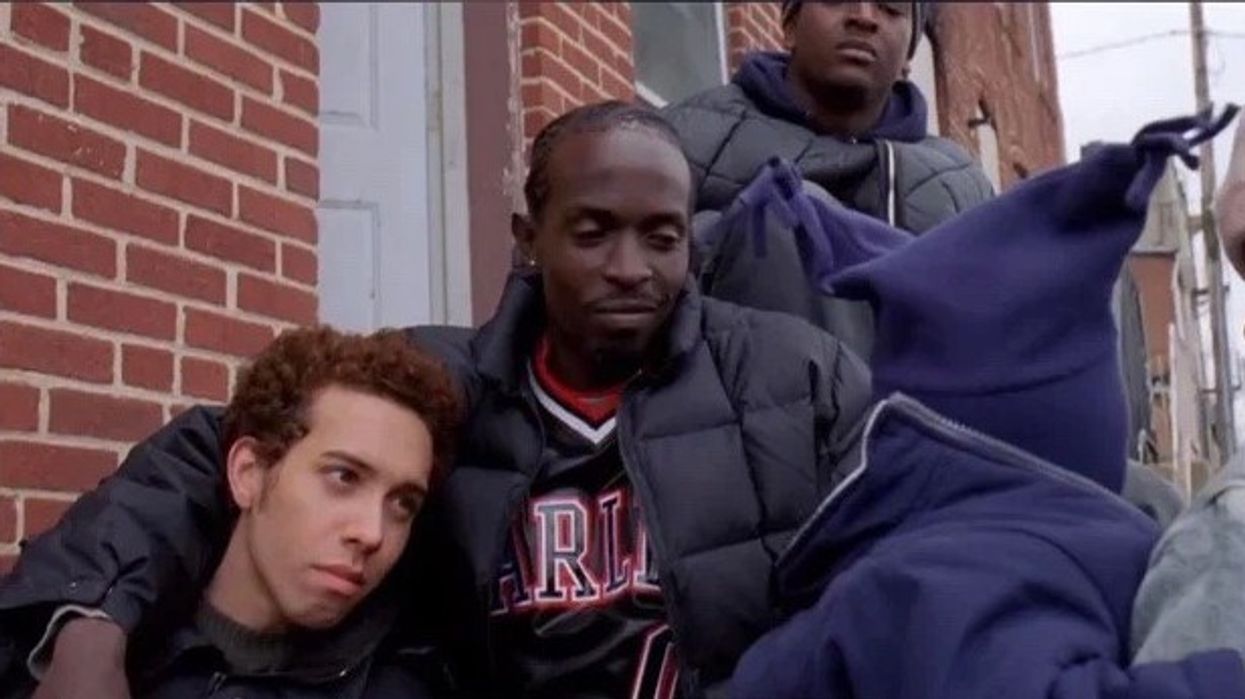Why Michael K. Williams Pushed for More Gay Intimacy on 'The Wire'
Michael K. Williams recognized how groundbreaking Omar's character was on The Wire and pushed to highlight the character's sexuality.

The actor’s legacy can live on through their characters. The late Michael K. Williams' Omar Little on The Wire made us excited to watch the show and follow along on his journey. The five-time Emmy nominate Williams also delivered memorable performances on Lovecraft Countryand Boardwalk Empire.
Omar was brought to life by Williams’s sensitivity and smarts. The character embodied everything that The Wire wanted to be by adding a level of heart and soul that is reminiscent of our favorite rogue outlaw-type of characters.
IndieWire reported that in his newly published memoir, Scenes from My Life, Williams reflected on his enduring legacy as Omar in the show before his death in 2021, writing:
“As for Omar’s homosexuality, it was groundbreaking 20 years ago, and I admit that at first I was scared to play a gay character. I think my initial fear of Omar’s sexuality came from my upbringing, the community that raised me, and the stubborn stereotypes of gay characters. Once I realized that Omar was non-effeminate, that I didn’t have to talk or walk in a flamboyant way, a lot of that fear drained away. I made Omar my own. He wasn’t written as a type, and I wouldn’t play him as one.”

We have talked about how Omar is a masterclass at writing character development and character arcs, but the character’s sexuality was a huge point of importance back in 2002. The charismatic, generally kind, Robin Hood-type figure broke almost every conceivable notion that audiences had about criminals, sexuality, and Black masculinity.
In the context of Bush's America, a time when Bush had recently won the election by campaigning against gay marriage, gay male representation was characterized by the flamboyant stereotype rather than being a fully realized character. Black gay male representation was virtually nonexistent on television.
Omar is a feat of diversity and representation on screen, and the show doesn’t pat itself on the back for its bravery. Instead, Omar’s sexuality just is.
Williams recalled pushing The Wire production to showcase all angles of Omar’s life onscreen, including his gay relationship, to fully represent the character. “Everyone was dancing around their intimacy issues,” Omar said when talking about the relationship between Omar and his partner Brandon (Michael Kevin Darnall).
“There was lots of touching hair and rubbing lips and things like that,” Williams said of the script. “I felt like if we were going to do this, we should go all in. I think the directors were scared, and I said to one of them, ‘You know gay people fuck, right?”
Williams decided to talk to Darnall on set about kissing in a specific scene. Darnall, who wanted to run it by the director, agreed, asking Williams to “make it spontaneous so it looks natural.”
“They called us for rehearsal and the crew was still putting the set together, getting the lights and camera up while we ran through it,” Williams said. “When I went in and kissed Michael on the lips, everyone stopped what they were doing and went slack-jawed.”
Director Clark Johnson walked up to the rehearsal after sensing the crew’s reaction, and to them to “do that again” for another take.

Johnson told the two actors that they were “some brave motherfuckers,” and told the crew to set up the shot. Williams believed that Johnson was anxious to get it before one of the actors changed their minds.
The improvised scene was groundbreaking, and William, Darnall, and Johnson knew this.
“Twenty years ago, men—especially men of color—were not kissing on television,” Williams wrote. “I don’t mean it was rare; I mean it did not happen.”
Omar will always be an iconic and important character in television history. Williams’ tender approach to the character highlighted what The Wire was truly about—humanity and the desire to make a difference in a capitalistic system that doesn’t care about everyday people who are struggling to survive.
Source: IndieWire











